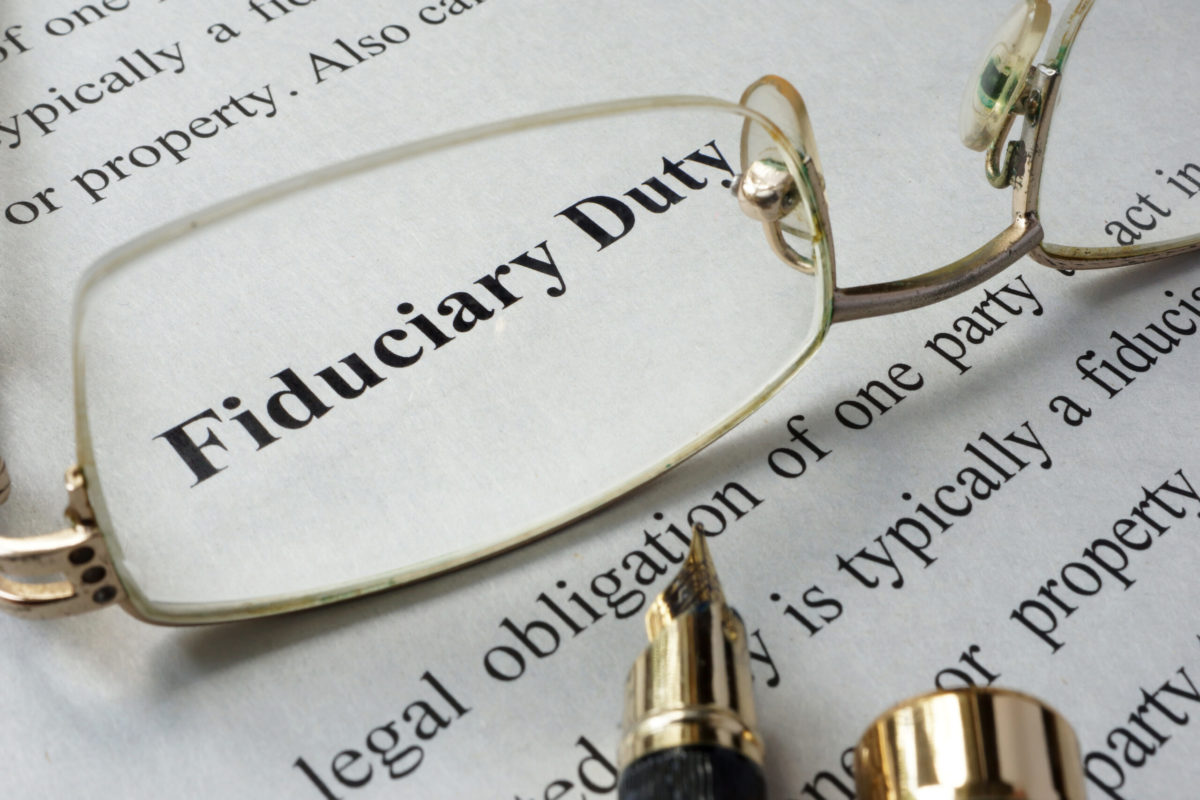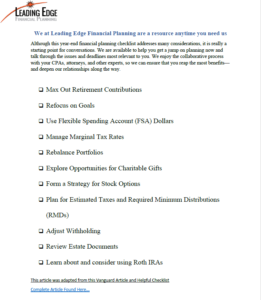We've been tremendously fortunate to have added three new advisors over the last few months. Many of you already know Ben Dickinson as he's been with us for almost two years now. However, he's moving into more of an advisory role as he's increased his knowledge base, experience and met the SEC's requirements to become an Investment Advisor Representative (IAR).
We've also added Mark Covell as an IAR. Mark is a soon-to-be-retired Marine fighter pilot as well as an American Airlines pilot. And yes, he's brilliant and talented in addition to being a Marine warrior for our country!
For many of you, this article may be your first introduction to Rob Eklund. He's one of our latest additions to the team. We're very excited to add Rob to our team of advisors because of his passion and excitement for helping people with their personal finances. My guess is his enthusiasm will come through in this article. He tells his story of searching for a trusted, fiduciary financial advisor to help him and his family with their personal finances before becoming an IAR himself. Click here to learn more about Rob's background and experience, and please check out his article below...
What Does Fiduciary Mean and Why is it Important
The first time I heard the term "fiduciary," I said to myself, "fidu…what? Sounds fancy." Then I fell asleep. Admittedly, this topic appears boring and could put my 16-year-old boy all hopped up on Mountain Dew to sleep! But here is a wake-up call; knowing who is and who is not a fiduciary is the first step in finding someone to help you with your retirement and investment planning.
I have been interested in investing ever since I was knee-high to a grasshopper. However, I acquired this fiduciary knowledge several years ago when I was a newly minted first officer for a major airline, before becoming an investment advisor myself. At that time, I began a journey to find a trustworthy financial advisor for myself and my family. As a military officer, money had not been a primary concern, and to be honest, I didn't have enough of it to matter. But as I began my major airline career in 2013, I realized I would soon have enough money that I had better start thinking about how to manage it. I knew I needed help. Furthermore, my focus was on learning how to be a first officer while still juggling my Air Force Reserve career.
Many questions ran through my head. The biggest and most important was, "How can I protect my money?" The money I had worked so hard to accumulate. What I found surprised me. Many financial advisors wanting my business were not fiduciaries. Some of these advisors were very intelligent and could sell with the best. One problem, they only had a "suitable" duty of care to me versus a fiduciary standard.
The Suitability Standard
The suitability standard means an advisor or broker only had to put my money into investments they deemed adequate. They did not need to give me advice that put my interests ahead of their own.
The Fiduciary Standard
A fiduciary is someone who acts on behalf of another person and has a legal and ethical obligation to put their clients' interests ahead of their own. SEC Chairman Jay Clayton defined the fiduciary responsibility this way, "This duty - comprised of both a duty of care and a duty of loyalty - is principles-based and applies to the entire relationship between the investment adviser and the client." When someone is a fiduciary, it applies to the "entire relationship," not parts of it. It is the highest standard in the financial world.
You may be saying, "Okay. Great! Aren't all financial advisors' fiduciaries?" Unfortunately, the term financial advisor is very nebulous and can apply to almost anyone. In fact, most financial advisors are not fiduciaries. Furthermore, more than half of respondents (53 percent) to a 2017 Financial Engines survey mistakenly believe that all financial advisors are already legally required to put their clients' best interests first.
Regulation Best Interest, aka "Reg BI"?
Reg BI, effective January 1st, 2020, attempted to improve upon the suitability standard and move the ethical bar higher for anyone who calls themselves a financial advisor. Instead of only having a suitable duty, they are now supposed to have a "best interest" duty. The regulation takes several steps to raise the bar (like having to disclose conflicts of interest); however, it does not change the dynamics of how a non-fiduciary advisor operates or receives compensation.
"It is difficult to get a man to understand something when his salary depends upon his not understanding it." ~Upton Sinclair
I believe this is what Reg BI attempts to do. It tries to get brokers to act in the client's best interest, but their salary often depends on him not doing so. I fear that many advisors will continue finding ways to put clients in funds that pay them a commission. Even in the regulation itself, the term "best interest" is ill-defined and very open to interpretation.
Fee-Only versus Fee-Based
The critical distinction is that an advisor operating under Reg BI can still be paid by a 3rd party to put a client's money in certain investments or insurance products. In other words, if an advisor gets paid by a third party (mutual fund company or insurance/annuity company) to put your money in certain investments or insurance products, then there is a conflict of interest. And at that moment, the advisor needs to disclose that they are NOT acting in a fiduciary capacity.
Most fiduciaries operate in a "fee-only" manner. This means the client's fees are the only source of income for the advisor, and they are not paid commissions from third parties or outside sources that could bring into question the objectivity of the advice given. Be sure to understand the distinction between a "fee-based" financial advisor who may earn a commission and a fee versus a fee-only advisor. The language is very nebulous and confusing for a reason.
Back to my personal journey in search of a trustworthy financial advisor; During one conversation, I asked, "Do you have a fiduciary duty to me?" What should have been a simple yes or no, was instead a bunch of hemming and hawing, but no real answer. Not to be deterred, I asked again. This time I received another vague response, so I asked once more. Finally, this advisor told me he only had a suitable responsibility (today, he would have told me he had a best interest responsibility). Case closed! He may have been a great advisor, but he had no legal obligation to do what was best for my family and me.
I wanted my financial advisor to do what was in my highest interest. Furthermore, I wanted someone whose advice was objective and had no incentive to put me in a particular mutual fund. For me, the fiduciary advisor is the answer.
"How do you find out if someone has a fiduciary responsibility to you?" This one is easy, ask.
Ask the following question, "If I hire you as my advisor, do you always have a fiduciary duty to me?" If the answer is not a fairly quick, "Yes" I advise looking elsewhere. If it is, follow it up with this question, “To be clear, you never put on a broker hat and always have a fiduciary responsibility to me?” The answer should again be, “yes.”
Beyond asking, you should also be able to find out by looking at the disclosures on their website or looking at their Form ADV Part 2A/Firm Brochure or the new Client Relationship Statement (CRS) mandated by Reg BI.
When I became an advisor, I knew I wanted to do it the right way and act as a fiduciary for my clients. Thankfully, Leading Edge Financial Planning (LEFP) shares this belief. Our Form ADV Part 2A says this:
Item 10: Other Financial Industry Activities and Affiliations "No LEFP employee is registered or has an application pending to register as a broker-dealer or a registered representative of a broker-dealer. LEFP only receives compensation directly from our clients. We do not receive compensation from any outside source, nor do we pay referral fees to outside sources for client referrals."
If you have gotten this far and not fallen asleep, I thank you. As you now know, I am a fiduciary and vow to protect my clients' hard-earned money with the highest devotion to their goals. Until next time, I hope you have only tailwinds and blue skies!












